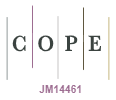Education and politics in formation: provocations for a necessary debate
DOI:
https://doi.org/10.5585/eccos.n71.27587Keywords:
autonomy, education, politicsAbstract
The topic addressed in this work is of great relevance and has been widely discussed by educators and people who, in one way or another, are involved with education. The relationship between formal education and political participation is an old and essential subject for the maintenance and strengthening of democracies. In the historical context of the constitution of society, it is possible to observe that human formation for autonomy has always been the goal of those who proposed to think and practice education in a way committed to ethics and politics. Autonomy is undoubtedly one of the great ideals of human formation. From Modernity onwards, and especially with the birth and development of science and technology, education began to follow the rules of consumption dictated by the media, professionalization, and instrumentalization, reducing the field of education to the functional formalities necessary to operate under the aegis of technical rationality. In this way, the aim is to highlight the meaning of education as politics in the modernization process that prioritizes bureaucracy, productivity, and efficiency, to the detriment of human, intellectual work and living, creative, and questioning thought. This study questions the meaning of education and seeks to establish it as a human achievement committed to ethical and political practice in search of the best way of life in society.
Downloads
References
ARENDT, Hannah. A condição humana. 10ª ed. Rio de Janeiro: Forense Universitária, 2007.
ARENDT, Hannah. Entre o passado e o futuro. Tradução Mauro W. Barbosa. São Paulo: Perspectiva, 2016
ARISTÓTELES. Ética a Nicômaco. Tradução e notas António de Castro Caeiro. São Paulo: Atlas, 2009.
CHARLOT, Bernard. A mistificação pedagógica: realidades sociais e processos ideológicos na teoria da educação. Rio de Janeiro: Zahar Editores, 1979.
COELHO, Ildeu Moreira. A questão política do trabalho pedagógico. In: BRANDÃO, Carlos Rodrigues (Org.). O educador: vida e morte. 7.ed. Rio de Janeiro: Edições Graal, 1986. pp. 29-49.
COELHO, Ildeu Moreira. A gênese da docência universitária. Linhas Críticas. Faculdade de Educação.UnB. Brasília, v. 14, n. 26, pp. 5-24, jan./jun. 2008.
COELHO, Ildeu Moreira. Cultura, educação e escola. In: Educação, cultura e formação: o olhar da filosofia. Goiânia: Ed. PUC Goiás, 2009. pp.181-202.
COÊLHO, Ildeu Moreira. Qual o sentido da Escola? In: COÊLHO, Ildeu Moreira (Org.). Escritos sobre os sentidos da escola. Campinas, SP: Mercado de letras, 2012. Cap. 3, p.59- 86.
COELHO, Ildeu Moreira; GUIMARÃES, Ged. Educação, escola e formação. Inter-Ação, Goiânia, v.37, pp.323-339, jul./dez. 2012.
DEBORD, Guy. A sociedade do espetáculo. 2003. Disponível em http://www.ebooksbrasil.org/eLibris/socespetaculo.html. Acesso em: 23 de dez. de 2011.
GENTILI, Pablo. Neoliberalismo e educação: manual do usuário. IN: SILVA,Tomaz Tadeu; GENTILI, Pablo (Orgs.). Escola S.A.: quem ganha e quem perde no mercado educacional do neoliberalismo. Brasília: CNTE, 1996. pp. 9-49.
GUIMARÃES, Ged. A dificuldade da educação na sociedade do espetáculo. IN: PEIXOTO, Adão José. (Org.). Filosofia, educação e cidadania. Campinas, SP: Editora Alínea, 2001. pp. 71-94.
KANT, Immanuel. Resposta à pergunta: que é Esclarecimento? In: KANT, Immanuel Textos seletos. Tradução de Raimundo Vier. Ed. Bilíngue. Petrópolis: Vozes, 1974.
KANT, Immanuel. Sobre a pedagogia. Tradução de Francisco Cock Fontanella. 5. ed. Piracicaba: Editora UNIMEP, 2006.
NUSSBAUM, Martha C. Sem fins lucrativos: por que a democracia precisa das humanidades. São Paulo: Martins Fontes, 2015.
ROUSSEAU, Jean-Jacques. Emílio ou da educação. Tradução: Sérgio Milliet. Rio de Janeiro: Bertrand Brasil, 1992.
SENNE, Wilson A. Educação, política e subjetividade. In: FILHO, Manoel Mendonça eNOBRE, Maria Teresa (Org.). Política e afetividade: narrativas e trajetórias de pesquisa. Salvador, São Cristóvão: EDUFBA/EDUFS, 2009.
Downloads
Published
How to Cite
Issue
Section
License
Copyright (c) 2024 Liliane Barros de Almeida

This work is licensed under a Creative Commons Attribution-NonCommercial-ShareAlike 4.0 International License.
- Abstract 75
- pdf (Português (Brasil)) 50






